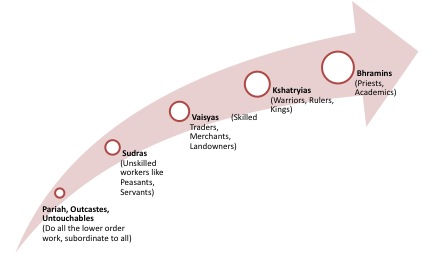Author: Esther Grob

Photo: Zurich Tourism, Martin Rütschi
On my first business trip to India, I was amazed by the cultural differences; but my experience at a business dinner gave me pause to think.
MyIndian business colleagues, in my opinion, behaved disrespectfully towards the taxi driver and the staff at the venue. On the other hand their attituted towards me was friendly, reverential, professional and open-minded. During my entire stay in India I noticed different behaviour among the locals and I was confused about how to act. Once back home, I did some further research on the economy, history and the social structure of India. And I learned from OSEC India business guide and further sources about India’s caste System.
This system is a complex social hierarchy into which one is born. It is strongly identified with the Hindu religion and philosophy and carried over to other religions in the Indian subcontinent. The caste system has five main classes. It is used to place people in occupational groups having a specific social rank in hierarchical order which determines the behaviour of one member of society towards another. The lower castes were prevented from aspiring to higher positions. This principle has kept a sense of order between the castes and people accepted that it is the way to keep society from disintegrating. Although the caste system is nowadays forbidden by law and urbanization has reduced it, it is still observed and plays a major role in modern India. Even though caste and community are facts in Indian society, foreigners are not expected to behave differently toward any caste. After understanding this code I realized that their behaviour is not based on a superior attitude, it is just part of their cultural and historical background.
It is mandatory when entering a new market to get an economic overview and to be informed about the expected GDP growth. But what I learned from my experience in India is that learning about a market history, behaviour, social rule and business hierarchy is equally as important.
